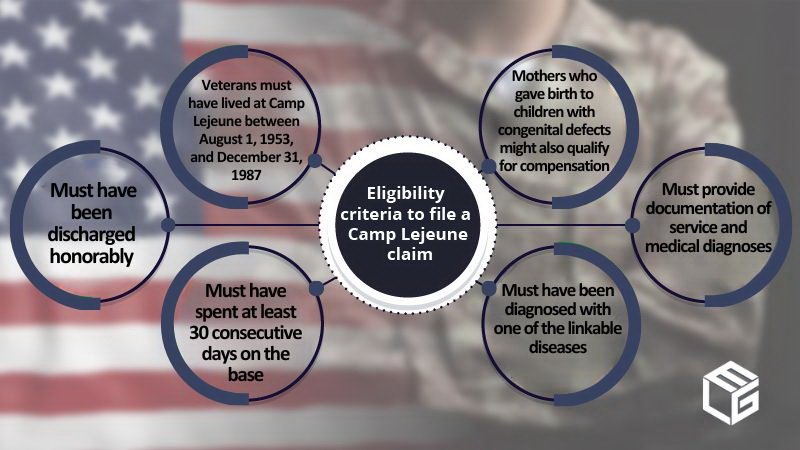Attention: We are no longer taking Camp Lejeune cases!
The prevalence of kidney cancer is higher in Camp Lejeune veterans
Toxic exposure at one of the largest military bases nationwide, Camp Lejeune, has been ongoing for decades. Ever since the establishment of the military facility, the drinking water has become contaminated with industrial solvents due to the presence of the dry-cleaning firm ABC One-Hour Cleaners near the site.
The company would improperly dispose of these chemicals, which would then infiltrate the water sources at Camp Lejeune.
In 2014, the Centers for Disease Control and Prevention issued a report on the health impact of the contaminants found in the drinking water at Camp Lejeune. The report concluded that Marines who had been stationed at Camp Lejeune had a 10% higher risk of dying from cancer than those who had spent time at Camp Pendleton, one of the hundreds of installations that are under investigation by state and federal authorities for potentially hazardous environmental contamination.
Veterans and civilians who spent time at Camp Lejeune have a 35% higher risk of developing kidney cancer
Both trichloroethylene and perchloroethylene are carcinogenic to humans. Exposure to the former has a definitive association with kidney cancer, while exposure to the latter was linked to kidney cancer by a study from the medical journal Occupational and Environmental Medicine.
Once inside the body, trichloroethylene causes renal toxicity if present in great amounts, which is a risk factor for cancer.
According to a study from Anticancer Research, intermediate and high trichloroethylene exposure has a higher average mortality rate for kidney cancer. Trichloroethylene is classified by the International Agency for Research on Cancer as a kidney carcinogen, which speaks volumes about the potential of this solvent to cause kidney cancer.
In 2009, the National Research Council reviewed the scientific evidence on the association between renal toxicity and exposure to trichloroethylene and perchloroethylene at Camp Lejeune. The report included a thorough examination of both human and animal studies on the renal toxicity induced by exposure to the two solvents. According to the results, long-term exposure to trichloroethylene in mice leads to the following, which are associated with cancer:
- molecular changes
- kidney damage
- cellular changes
Benzene is another solvent that lurked in the drinking water at Camp Lejeune and it also has a connection with kidney cancer. A study from Occupational Medicine found that kidney cancer risk increased with the duration of exposure to benzene and that men were more likely to develop this disease as a result of benzene exposure.
What former residents of Camp Lejeune who have kidney cancer need to know
The U.S. Department of Veterans Affairs has acknowledged that toxic exposure at Camp Lejeune increases the risk of kidney cancer. If you or a family member has been affected by toxic drinking water at Camp Lejeune, you may be entitled to compensation for past, current, and future medical bills, lost wages, and loss of quality of life. Veterans exposed to toxic agents can also receive free healthcare from VA medical facilities.
The Caring for Camp Lejeune Families Act of 2012 applies to veterans, former reservists, and former National Guard members who:
- were stationed within the borders of the entirety of the United States Marine Corps Base Camp Lejeune, North Carolina
- had service between August 1, 1953, to December 31, 1987, for no less than 30 consecutive days
The legislative package covers eight presumptive service-connected diagnoses, including kidney cancer, for purposes of entitlement to VA benefits. It is important to note that, because the VA will presume that your cancer is related to your service, you will not need to prove that your illness is connected to your military service. To file a Camp Lejeune toxic water claim or lawsuit, we encourage you to contact our attorneys. They will guide you through every step of the legal process, as it can become very complex depending on your particular case.


